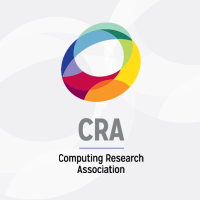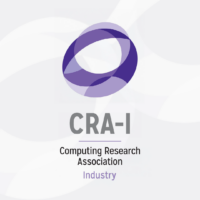CRA Update: NSF Selects CRA to Manage CSGrad4US Program That Will Award Over 220 3-Year Fellowships
By Matt Hazenbush, Director of Communications
CRA has received its largest-ever award, $42.1 million, from the National Science Foundation (NSF) to expand its role in the NSF Computer and Information Science and Engineering Graduate Fellowship Program (CSGrad4US).
Launched by NSF in 2021, CSGrad4US aims to boost the number and diversity of domestic graduate students pursuing research and innovation careers in computer and information science and engineering fields.
“CSGrad4US has the potential to transform computing PhD programs nationwide, and I’m thrilled that this award will allow us to continue this impactful work,” said Tracy Camp, Executive Director and CEO of CRA.
“This long-term commitment from NSF helps ensure the program will be a force for positive change in the community for years to come.”
Role Expansion for CRA
In the programs’ initial two completed cohort cycles, CRA’s Education and Widening Participation committees developed and ran a mentoring program, which included guiding participants through the application process towards a successful computing PhD admission and school selection, and mentoring them through the transition to PhD graduate study in the first year.
The record-breaking award to CRA expands its role beyond the mentoring program to complete management of the CSGrad4US Fellowship program, from application development to subaward management and participant evaluation/tracking.
“With this award, NSF has shown a lot of trust in us to maximize the impact of these dollars and really move the needle against the program’s goals,” said Erik Russell, CRA’s Director of Educational Initiatives and Principal Investigator of the CSGrad4US Fellowship Program.
“We’re very proud of the work we did to stand up the mentoring program, and I’m excited for us to expand our efforts to the broader management of the program. It is largely through the support of the computing research community that service initiatives like CSGrad4US are able to thrive.”
The Co-Principal Investigators of CSGrad4US program are Susanne E. Hambrusch, a Purdue University professor; Russell Joseph, an associate professor at Northwestern University; Lori Pollock, a University of Delaware professor, CRA board member, and co-chair of CRA-E; and Kelly Shaw, a Williams College professor and co-chair of CRA-E.
Program Seeks to Boost Domestic Computing PhDs
CSGrad4US was started to address the significant supply and demand imbalance for computing PhDs in the United States. While the rapid growth in undergraduate computing enrollments during the last decade has significantly increased the number of open faculty positions at academic institutions, it has not yet led to a significant increase in the number of PhD students graduating. At the same time, the percentage of PhDs awarded to domestic students has declined.
To increase the interest of domestic students in pursuing a PhD, NSF started the CSGrad4US PhD fellowship program in 2021 by providing three years of financial support for graduates returning to a PhD program in a CISE field after having been in the workforce. The program helps bachelor’s degree holders return to academia and pursue their research interests, enabling them to engage in innovative and high-impact projects without the burden of financial constraints.
Russell observed, “Many people, particularly first-generation college graduates, face a challenging decision when they’re considering leaving a well-paying industry job to pursue a PhD. The financial assistance offered by CSGrad4US makes it a more viable option, and the mentorship provided to fellows ensures they also receive the non-financial support they need to be successful.”
Since its launch in 2021, a total of 169 individuals have been selected for the CSGrad4US Fellowship program in three application cycles. Of those, 70 recently began the CSGrad4US Mentoring Program portion, during which they are paired with a coach and work through a series of mentoring sessions and activities. There are currently 68 CSGrad4US Fellows that have already begun their CISE PhD programs. The remaining individuals selected for the fellowship have either deferred their graduate school applications, deferred their graduate enrollment after being accepted, or have decided against attending graduate school.
Intellectual Merit and Broader Impacts
The fellowship program will collect data on the profile of graduates who apply for the fellowship, are accepted into the program, decide to apply to PhD computing programs, enroll in a CISE PhD program, and complete PhDs. Analysis of the data will provide valuable insights on recruiting and mentoring PhD students returning to school from the workforce.
“There’s so much opportunity to better understand the different pathways people can take to a CISE PhD and the challenges they face in pursuing graduate school,” said Lori Pollock, co-PI of the program.
“This program will enable us to learn a lot that will help us drive positive changes in graduate admissions as our community strives to better serve the kinds of students CSGrad4US attracts.”
In addition, management of the fellowship program and its accompanying mentoring program will lead to the development of a mentoring framework and a professional development model. These models can serve as templates that may be duplicated within the computing field and potentially across other STEM disciplines with the aim to increase the number of domestic PhD graduates.
“Understanding the wide range of participants’ application experiences, as well as the experiences of the coaches, is enabling us to gain valuable and unique insights into the PhD application process for this population,” said Kelly Shaw, co-PI of the program.
“Based on feedback from Fellows currently enrolled in PhD programs, we know this program is changing lives. I’m excited to continue learning how we can better recruit, support, and retain individuals applying to PhD programs through the CSGrad4US program and believe the knowledge we gain will help us provide better structures and guidance for all domestic students interested in obtaining PhDs in computing fields.”
Time of Great Opportunity for CRA and the Computing Research Community
Receiving an award of this magnitude opens up exciting opportunities for CRA and the computing research community.
In recent months, the organization has added to its staff a diverse array of talented and dedicated professionals across a variety of functions, including program and grant management, communications, and data and evaluation.
“It’s a very exciting time for CRA. Awards like this allows CRA to be even more innovative, which then broadens our impact for the community research community,” said Camp, Executive Director and CEO.
For more on CSGrad4US, visit the program homepage on cra.org.









